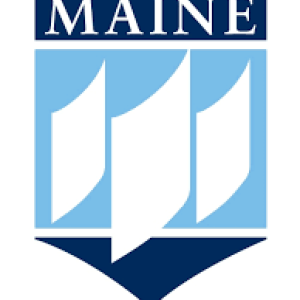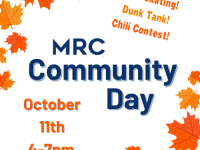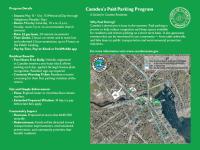Mitchell Center discussion looks at 'Hunting for Truth: PFAS Impacts in Maine’s Natural Food Sources'
The Senator George J. Mitchell Center for Sustainability Solutions at the University of Maine will host a talk, “Hunting for Truth: PFAS Impacts in Maine’s Natural Food Sources” on Monday, Sept. 22, at 3 p.m.
In this talk, UMaine faculty Caroline Noblet and Dianne Kopec will explore how people in rural Maine, who possess a long heritage of fishing and hunting, are navigating impacts from environmental contamination, particularly by a group of chemicals known as PFAS. Two surveys conducted in collaboration with Maine’s Department of Inland Fisheries and Wildlife, one with Maine fishing license holders and another with Maine hunting license holders, allowed the research team to conduct an in-depth exploration of how people who hunt and fish in Maine are processing information about consumption advisories, and potentially changing their behaviors.
Noblet is an associate professor in the UMaine School of Economics. Her current PFAS work focuses on how Maine residents perceive PFAS contamination — particularly in fish and game — and how messaging can influence environmental and consumption decisions. Kopec is a research fellow at the Mitchell Center. Her research examines how ecology and behavior influence an organism’s exposure to toxic contaminants in aquatic ecosystems.
All talks in the Mitchell Center’s Sustainability Talk series are free and are offered both remotely via Zoom and in person at 107 Norman Smith Hall.
Registration is required to attend remotely; to register and receive connection information, see the event webpage.
To request a reasonable accommodation, contact Ruth Hallsworth, 207.581.3196; hallsworth@maine.edu.
About the Senator George J. Mitchell Center for Sustainability Solutions
The Mitchell Center for Sustainability Solutions at the University of Maine aspires to be a leader and valued partner in understanding and solving problems related to the growing challenge of improving human well-being while protecting the environment. We collaborate with diverse stakeholders and bring together faculty and students from many different fields. By connecting knowledge with action, we seek to create a brighter environmental, social and economic future in and beyond Maine.
About the University of Maine
As Maine’s only public research university and a Carnegie R1 top-tier research institution, the University of Maine advances learning and discovery through excellence and innovation. Founded in 1865 in Orono, UMaine is the state’s land, sea and space grant university with a regional campus at the University of Maine at Machias. Our students come from all over the world and work with faculty conducting fieldwork around the globe — from the North Atlantic to the Antarctic. Located on Marsh Island in the homeland of the Penobscot Nation with UMaine Machias located in the homeland of the Passamaquoddy Nation, UMaine’s statewide mission is to foster an environment that creates tomorrow’s leaders. As the state’s flagship institution, UMaine offers nearly 200 degree programs through which students can earn bachelor’s, master’s, professional master’s and doctoral degrees as well as graduate certificates. For more information about UMaine and UMaine Machias, visit umaine.edu/about/quick-facts/ and machias.edu/about-umm/umm-facts/.
Event Date
Address
University of Maine
107 Norman Smith Hall
Orono, ME 04469
United States
























